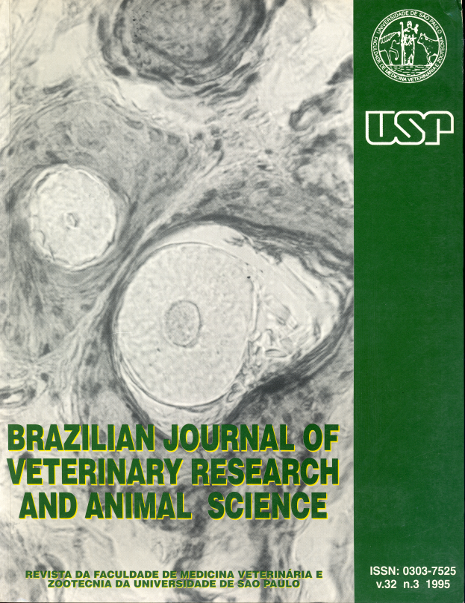Diabetic rats are hyporeactive to non-steroidal but not to steroidal antiinflammatory drugs: effect on cell migration
DOI:
https://doi.org/10.11606/issn.1678-4456.bjvras.1994.52101Keywords:
Inflammation, Diabetes, Antiinflammatory agents, CarrageeninAbstract
The effect of steroidal antiinflammatory drugs (SAID) and non-steroidal antiinflammatory drugs (NSAID) on carrageenan-induced (300 mcg) pleurisy was studied in diabetic rats (40 mg/kg alloxan, iv). Indomethacin (2.0 mg/kg, po), pyroxicam (10 mg/kg, po) and dexamethasone (0.25 mg/kg, ip) significantly inhibited (P < 0.01) the accumulation of total leukocytes by 49,57 and 66%, respectively, and of polymorphonuclear cells by 50,60 and 66%, respectively, in normal rats. Diabetes significantly reduced total leukocytes (52%) and polymorphonuclear (58%). Pretreatment of diabetic animals with pyroxicam or indomethacin did not significantly inhibit total leukocyte or polymorphonuclear accumulation, indicating that the drugs were ineffective in the presence of diabetes. Dexamethasone, on the other hand, was as effective in diabetic animals as in the controls. All three drugs were significantly effective in inhibiting increased vascular permeability to carrageenin both in control and in diabetic animals. Untreated diabetic rats displayed a 24% weaker increase in vascular permeability than in controls. At the doses used, NSAID, but not SAID, are ineffective against carrageenan-induced cell migration in diabetic rats. Vascular permeability increase and cellular migration are independent phenomena as far as the effect of antiinflammatory drugs are concerned. Diabetes mellitus can affect NSAID action when cell migration is involved but not when plasma extravasation evoked by inflammatory stimuli is under consideration.
Downloads
Downloads
Published
Issue
Section
License
The journal content is authorized under the Creative Commons BY-NC-SA license (summary of the license: https://





